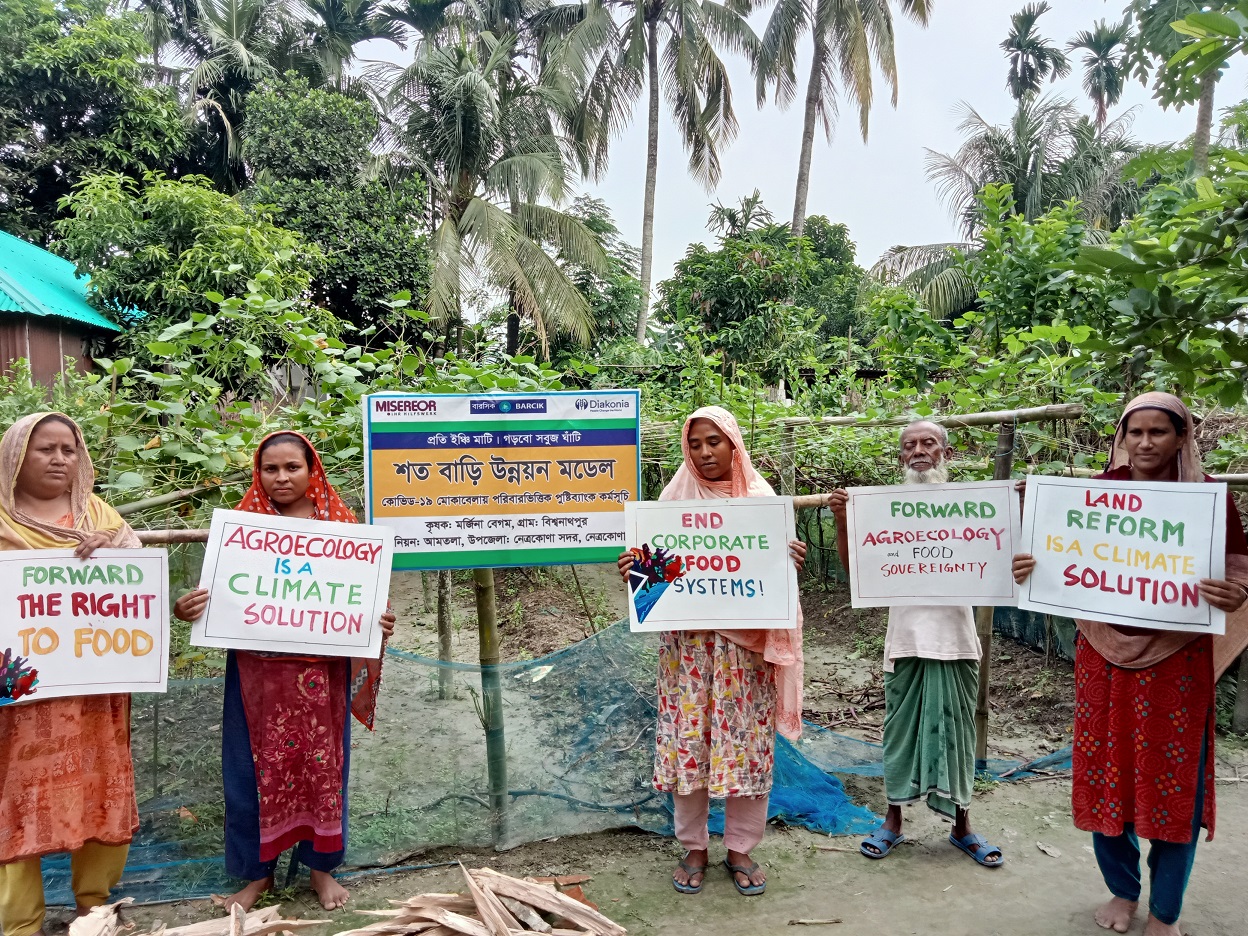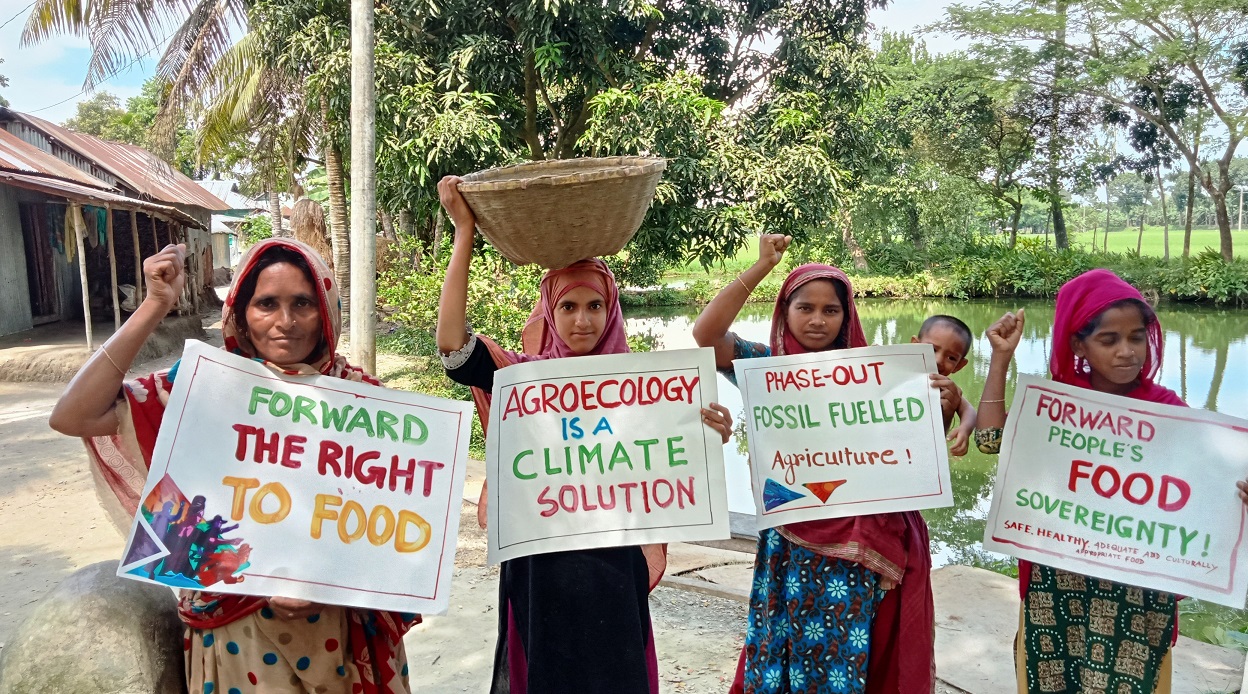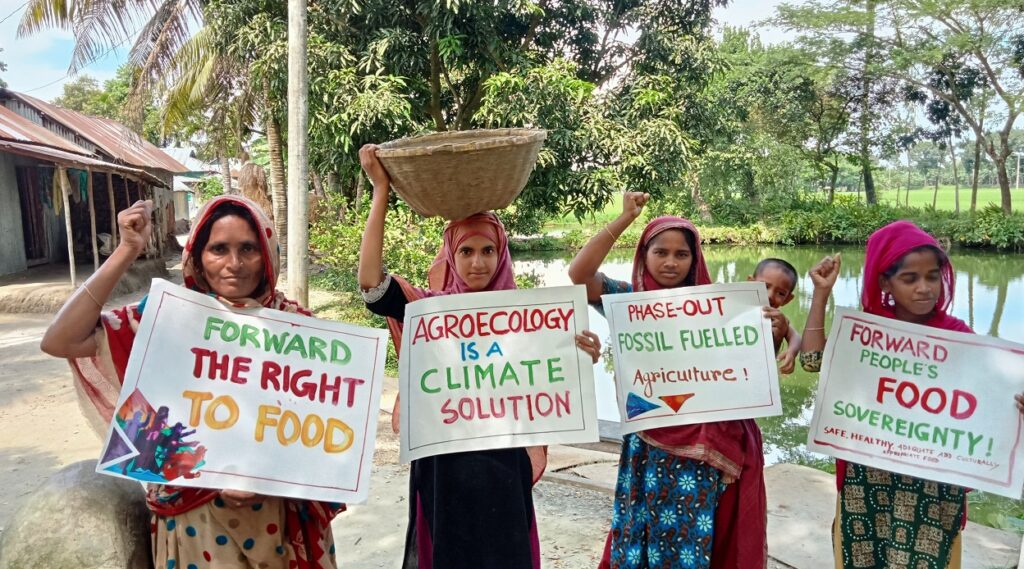By Md. Ahidur Rahman from Netrakona
If climate justice is ensured it will reflects in the decline rate of climate induced disasters and this will impact of lands, agriculture and other aspects of the nature. Disasters often damage crops, deteriorate the structure of landscape and sometimes contaminate the fresh water sources of living being. Farmers in Bangladesh have experienced different types of the climate disasters which kill lives, damage crops and deplete the biodiversity. However, due the increased frequency and intensity of the climate induced disasters the soil, water and air pollution is increasing day by day. As a result of this pollution environmental problems are impacting on the life and livelihood of the marginal communities in the rural areas who are not responsible for the rapid change of the climate. Due the negative impacts of climate change food production is decreasing and people are displaced from their native lands. The agricultural ecosystem is also getting destroyed day by day.

However, Bangladesh or the people of Bangladeshi villages are not responsible for climate change in anyway. They still plant trees, conserve biodiversity, protect greenery, save seeds, save medicinal plants for their own needs, raise livestock and practice chemical free sustainable agriculture in food production that ensures poison-free food. But the frequent climate induced disasters have created negative impacts of the livelihood of the marginal communities as they are unable to cope with the dynamic nature of climate disasters during farming. They have to adapt to the rapid change of climate and sometimes due to lack of knowledge and assistances they count huge loss when climate induced disasters hit their crops in the field. This is not the problem of farmers alone; actually climate change related problem is a global issue and it needs to address this problem globally.
In order to create the attention of the national and regional policymakers as well as other pressure groups the farmers of Netrakona with the facilitation support from BARCIK recently organized ‘Climate Justice March’ where farmers and other occupational groups participated. The farmers of Biswanath of Amtala Union of Netrakona district, Balikandi village of Teligati Union of Atpara Upazila and Ramjivanpur village of Swaramushia Union participated in this march to demand food, land and climate justice. The Climate Justice March started from village to village, which will turn into a global March gradually. Participating in the March the farmers said that Bangladesh’s food security and food sovereignty depend on the crops of rural farmers. But the problems and concerns of farmers still remained much neglected. These farmers mentioned that they have been practicing sustainable agriculture which is the keystone of agroecology and this agroecological practices keeps the nature and environment fresh and protected.

During the march, a women farmer said, ‘The vegetables and spices we produce around our house are poison-free. No chemicals are used. With our own knowledge, resources and seeds, we plant papaya, chilli, brinjal, bandweed, banana, ginger, turmeric in our backyard. We ensure safe food for our children with your own hands. If you buy fruits and vegetables from the market, they contain poisons and pesticides.’
It is to be mentioned that the event has been arranged as a part of of a campaign titled ’16 Days of Global Action’ run by BARCIK in its working areas and supported by PANAP.
Translated by Silvanus Lamin

